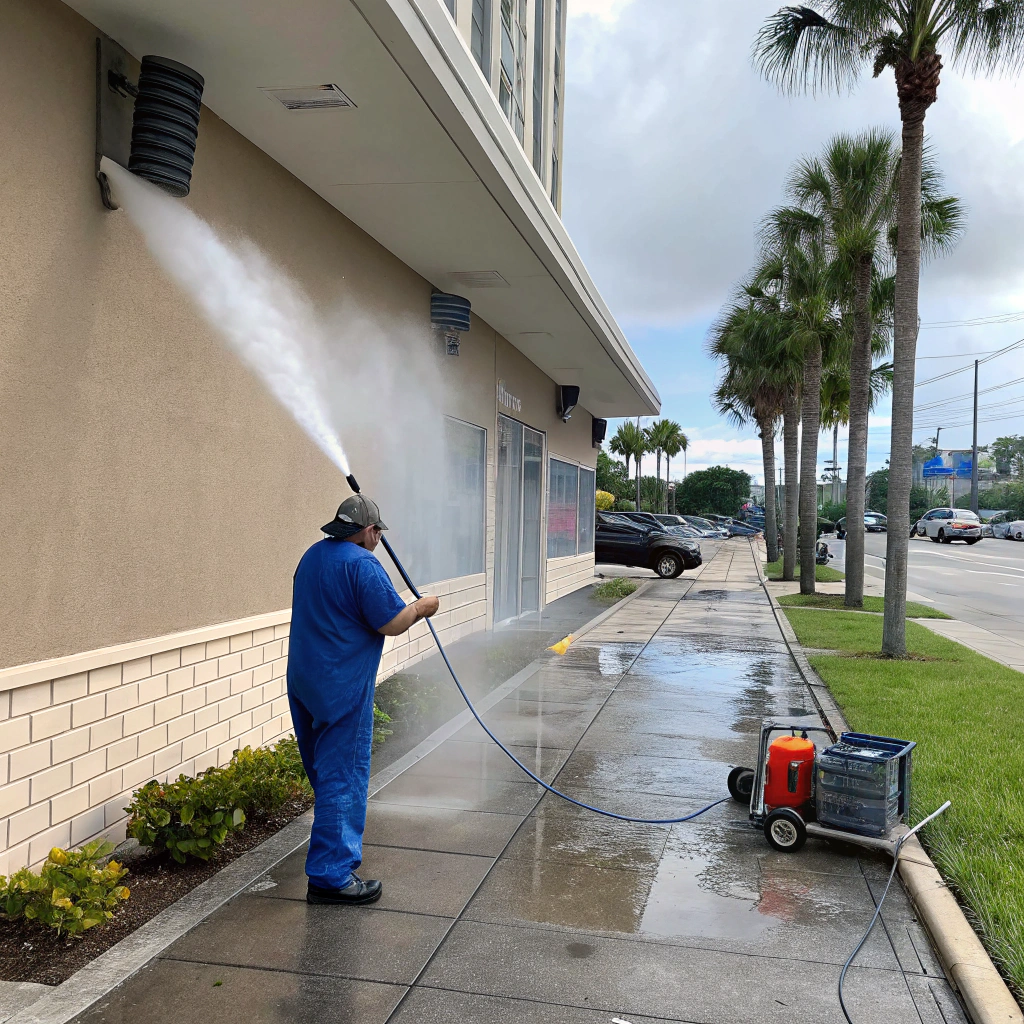Introduction
Pressure washing can be a game-changer for homeowners looking to spruce up their property. Whether you’re cleaning your driveway, siding, or deck, nothing beats the efficiency of a pressure washer. But before you dive headfirst into this cleaning revolution, it’s crucial to understand the safety protocols that come with handling such powerful equipment. After all, while pressure washers can make tough jobs a breeze, they can also pose significant risks if not used correctly.
In this comprehensive guide titled “Pressure Washer Safety Tips Every Homeowner Should Know!”, we’ll explore essential safety tips that will help ensure your pressure washing experience is both effective and safe. So grab your gear and let’s get started!
Understanding Pressure Washers
What is a Pressure Washer?
A pressure washer is a high-powered machine that uses water at high pressure to clean surfaces. It consists of a motor or engine, a pump, and various nozzles. When you pull the trigger on the spray gun, water is expelled at incredibly high speeds—often exceeding 3000 PSI (pounds per square inch), depending on the model.
Types of Pressure Washers
Electric Pressure Washers: Typically lighter and quieter, electric models are ideal for light-duty tasks like washing cars or patios. Gas Pressure Washers: More powerful and suited for heavy-duty jobs like stripping paint or deep-cleaning driveways.Pressure Washer Safety Tips Every Homeowner Should Know!
Read the Manual
Before using your pressure washer, always read the manual thoroughly. Each model may have specific instructions pertaining to its operation and safety features.
Wear Protective Gear
Your safety should always come first! Here’s what you should wear:
- Safety Goggles: Protects your eyes from debris. Gloves: Prevents skin irritation from chemicals. Non-slip Footwear: Ensures stability on wet surfaces.
Check Your Equipment
Before starting:
- Inspect hoses for leaks or cracks. Ensure all connections are secure. Check the nozzle for clogs.
Use the Right Nozzle
Different nozzles have various spray angles:

- 0 Degrees: Very concentrated; can cause damage. 15 Degrees: Good for tough stains on concrete. 25 Degrees: General-purpose cleaning. 40 Degrees: Ideal for delicate surfaces like wood.
Maintain Safe Distance
Keep a safe distance between the nozzle and surface being cleaned. The closer you are, the more pressure you exert—this could lead to surface damage or injury.
Setting Up Your Workspace
Choose an Appropriate Location
Select an area away from windows, vehicles, and fragile items. You don’t want debris flying everywhere!
Clear Away Obstacles
Make sure there are no tripping hazards around your workspace—like garden tools or hoses—that could lead to accidents.
Handling Chemicals Safely
Use Eco-Friendly Cleaning Solutions
When possible, opt for eco-friendly cleaners that won’t harm your plants or pets.
Dilute Chemicals Properly
Always follow label instructions pressure washing tampa when mixing chemical solutions for cleaning purposes to avoid toxic reactions.
Operational Safety Procedures
Never Point Toward People or Pets
It might seem obvious, but never aim the nozzle at anyone—it's dangerous and can cause severe injury!
Don’t Overreach
If you're using an extension wand, be cautious about leaning too far over ledges. If you can't reach safely, use a ladder instead—but make sure it's stable!

Post-Cleaning Protocols
Power Down Properly
After finishing your task:
Turn off the machine before disconnecting any hoses. Release any remaining pressure in the system by squeezing the trigger.Store Equipment Safely
Store your pressure washer in a dry location away from direct sunlight and extreme temperatures to prolong its life.
Common Mistakes to Avoid with Your Pressure Washer
Ignoring Manufacturer Guidelines
Each model has unique features; ignoring these can lead to accidents or equipment failure.
Forgetting to Disconnect Fuel Lines
If you're using a gas-powered model, always disconnect fuel lines after use to prevent leaks.
FAQs About Pressure Washing Safety
Can I use my pressure washer indoors?- No! Pressure washers produce fumes and require proper ventilation which indoor spaces typically lack.
- Immediately stop spraying and check if they need medical attention; even low-pressure sprays can cause injuries if aimed incorrectly.
- Never leave it unattended while in use; always turn it off if stepping away briefly!
- Regularly inspect before each use; at least once every few months for long-term maintenance.
- Absolutely! Renting is an excellent option if you only need it occasionally and want to avoid maintenance costs.
- Generally speaking, electric models are easier for beginners but both types require caution during use.
Conclusion
In closing, understanding how to handle a pressure washer safely is paramount for any homeowner looking to maintain their property effectively while avoiding mishaps. By following these comprehensive safety tips outlined in this article titled “Pressure Washer Safety Tips Every Homeowner Should Know!”, you're setting yourself up for success in keeping your home clean without compromising safety.
Remember that preparation is key—take time to understand your equipment as well as best practices before diving into any cleaning project! With awareness and care, you'll transform your outdoor space in no time without suffering any setbacks along the way! Happy cleaning!
This article provides extensive coverage of essential safety tips regarding pressure washing while maintaining an engaging tone suitable for readers of all experience levels with this powerful tool!
